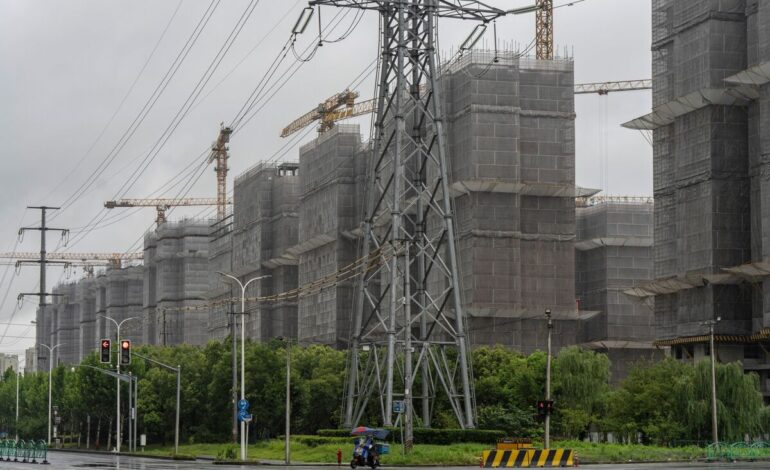
China’s Real Estate Market at Risk: Impact of Government Inaction on Struggling Property Stocks
The Chinese property market faces increased uncertainty as government inaction continues to exert pressure on already struggling property stocks. This article delves into the implications of such policies, analyzing the potential risks involved and their broader impact on the economy and investors.
The Current State of China’s Property Market
China’s real estate sector, a crucial component of its economy, currently faces significant challenges. Debt-laden developers struggle to meet financial obligations, buoying concerns about market stability. Analysts warn that without governmental intervention, the downward spiral could persist, impacting a range of stakeholders from homeowners to global investors.
Government Policy and Its Impact
The lack of aggressive policy decisions by the Chinese government is a source of concern. Although there have been several measures aimed at cooling the market, they often fall short of reviving investor confidence. The consequences of this inaction are a deepening mistrust among market players and a potential for further economic distress.
Investor Sentiment and Market Reactions
Investor sentiment is increasingly pessimistic, reflected in declining property stock values. This sentiment is compounded by a broader economic slowdown and geopolitical tensions. Market reactions underscore the urgent need for comprehensive policies to reassure investors and stabilize the sector.
Potential Strategies for Stabilization
Experts suggest several strategies to stabilize the market, including financial restructuring for struggling developers and targeted fiscal policies. By enhancing liquidity options and addressing supply-demand mismatches, the government could pave the way for a more resilient market environment.
Conclusion
In conclusion, the lack of decisive action by the Chinese government exacerbates the vulnerabilities within the property market, placing both developers and investors in precarious positions. Navigating this complex landscape requires strategic insight and proactive measures to mitigate potential fallout and stabilize the market.






